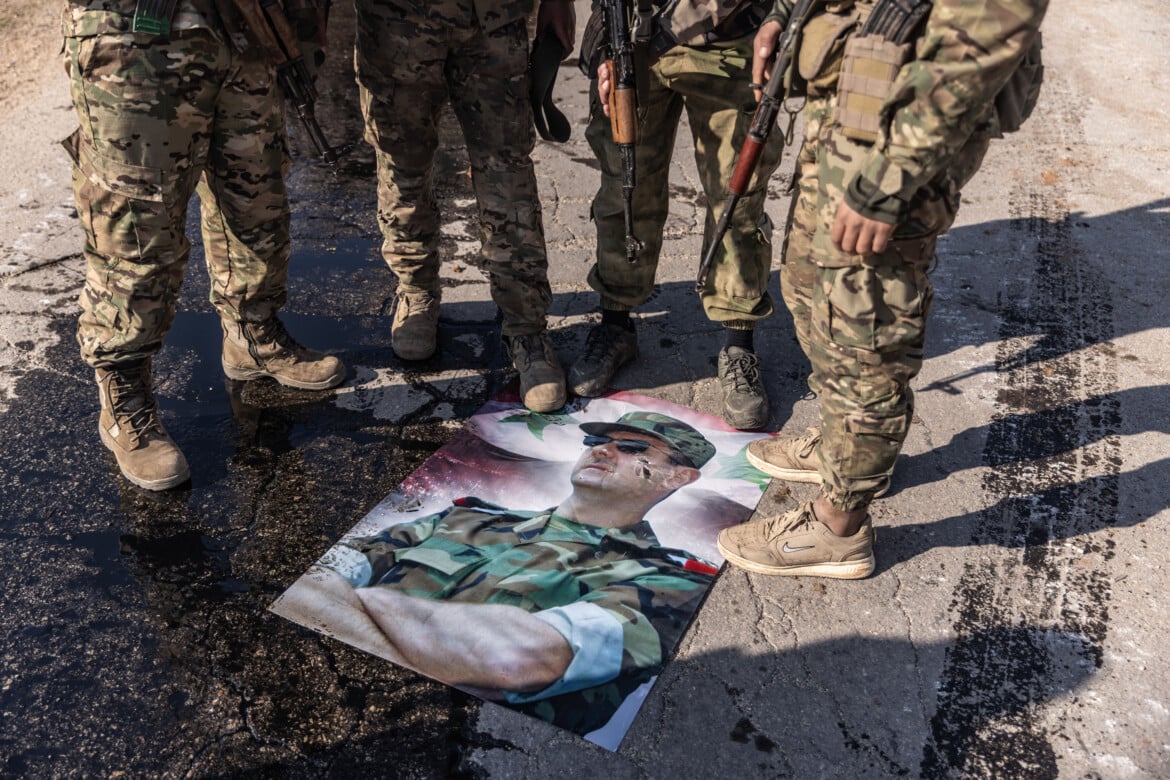Commentary
Jihadists in Aleppo and the plan to break up the Middle East
The threatening specter of jihadism has awakened once more, with a lightning advance supported by Erdogan's Turkey, Israel and the United States. Destabilizing Syria is useful for Netanyahu in order to strike at the Israeli Prime Minister’s big target, Iran.

Aleppo, like Iraq's Mosul, is one of the “martyr cities” of the Middle East, and perhaps it was Syria's fate that this is where everything had to start again – from the famous qalat, the thousand-year-old fortified citadel that never actually protected the city from any war. Years ago, on its steps, I picked up one of the last nails that had been lodged for centuries in the great wooden portal, shattered to pieces by the brutal battles between the Syrian national army and the jihadist rebels. For years, until 2016, the city was constantly hit by bombs from the rebels, explosive barrels from the Damascus regime, and air raids from Russian jets – crumbling, torn apart, starving, and with thousands of bodies hastily buried in mass graves.
The ceasefire in Lebanon had barely gone into effect when Israeli Prime Minister Netanyahu already announced his plan to destabilize the region: the Jewish state intends to take the chance to focus its aim on Iran, and the battle against Iranian influence inevitably involves Assad's Syria, whose Golan Heights Israel has occupied since 1967, keeping its rivals in its sights for years. And thus, from Idlib, the threatening specter of jihadism has awakened once more, with a lightning advance supported by Erdogan's Turkey, Israel and the United States, which has a military base here, guarding the oil wells. The advance routed Assad's weak forces, the Iranian Pasdaran, the last remnants of Hezbollah, and the Russian air force, which intervened late and, one might say, half-heartedly. As a result, the jihadist cutthroats are once again being bestowed by our media with the noble title of “the rebels.”
Putin and Netanyahu have gotten back in contact in recent days, and for a long time they’ve had an old unwritten agreement: Moscow, which intervened directly in support of Assad in 2015 – four years after the uprising began in March 2011 – has always made only feeble protests against the Jewish state's hundreds of raids in Syria, and this despite the fact that Assad is a Moscow ally, as are Iran, Moscow's drone supplier, and Hezbollah. We should recall that without the leadership of Iranian General Qassem Soleimani, who was killed by the U.S. in 2020 in Baghdad, the Islamic State (ISIS) and Al Qaeda-affiliated jihadist groups wouldn’t have stopped at conquering Mosul in Iraq, but would have also taken Aleppo, and perhaps even Damascus.
But the Putin-Netanyahu pact has held out, to the point that there was no concrete reaction from Moscow when Israel bombed an Iranian embassy building in Damascus. There are 1.5 million Russian-speaking Israeli citizens and 80,000-100,000 Israelis in Russia, while Russian oligarchs are doing business between Tel Aviv and Dubai and the well-known Russian billionaire Abramovic has for some time now been Israel's richest citizen. Due to all these lucrative economic ties, the Russian dictator and the Israeli premier – who has visited the Kremlin six times – try not to step on each other's toes, which also explains why Netanyahu has an aversion towards Ukrainian leader Zelensky, even though the latter is of Jewish origin. On Lebanon and Syria, Russia’s reluctance to react to Israel’s actions is clearly on display.
The agreements that resulted from the so-called “Astana process,” by which Russia, Iran and Turkey agreed to establish “de-escalation zones” that included the governorate of Idlib and the adjacent districts of Hama, Aleppo and Latakia, had endured, amidst many headwinds, until this jihadist offensive. But with the Lebanon war and the very hard blows dealt by Israel to Hezbollah and Tehran's allies, Iran’s Syrian front has been thoroughly weakened. In a nutshell, Iran’s Pasdaran (in Israel's crosshairs at all times) are no longer able to exert control over strategic points in Syria – ports and highways – that had so far served as decisive links in the military supply chain.
Thus, Erdogan decided to take advantage of this situation by giving the green light to the jihadists, with the goal of seizing more pieces of northern Syria for himself, keeping control over the Kurds and, perhaps, using these territories to rid himself of millions of Syrian refugees in Turkey, which is likely his most pressing goal. Assad is very weak, Iran is in crisis, Hezbollah needs to reorganize, and Putin is increasingly tied down by the offensive in Ukraine. As a result, the Turkish leader – who tends to make a lot of noise about the fate of the Palestinians, without doing anything concrete – has new cards to play in future negotiations with Putin, Assad, the Americans, and Israel too.
As for Netanyahu, his immediate goal is to prevent Hezbollah from rebuilding its military arsenal, which was partly destroyed in the carpet bombings in Lebanon. The transport chains for weapons and missile components assembled in Hezbollah's clandestine facilities go through Syria. Israel regularly bombs targets in Syrian territory linked to Iran and Hezbollah: just hours before the Lebanese ceasefire took effect, the Israeli Air Force destroyed three crossings between Syria and Lebanon, sending a clear message. Then, Netanyahu asked Putin to block Hezbollah traffic through the Syrian port of Latakia, where the Russian naval base is located.
Destabilizing Syria is useful for Netanyahu in order to strike at the Israeli Prime Minister’s big target, namely Iran: this is the most important part of the plan he will put before Trump once the latter takes office in the White House. With Hezbollah on its knees, the Palestinians decimated, Syria shattered and Iran in the crosshairs, the Israeli-American axis is seeing its “imperial” project of making the Jewish state the region's undisputed superpower coming closer within reach.
Originally published at https://ilmanifesto.it/si-riaccende-la-guerra-in-siria-ovvero-come-disgregare-il-medio-oriente on 2024-12-01
